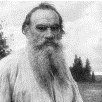Modern Languages and Literatures, Department of

Russian Language and Literature Papers
Document Type
Article
Date of this Version
2012
Citation
2012 European Studies Conference Selected Proceeding.
Also online at http://www.unomaha.edu/esc/2012Proceedings/McIntyreInfo.pdf
Abstract
At first glance, Crime and Punishment by Fyodor Dostoevsky and Great Expectations by Charles Dickens do not appear to have much in common. Put in extremely simplified terms, Crime and Punishment is about a young man, Raskolnikov, who has an ambition to become a “Napoleon”—a person who is above moral laws—and chronicles how that ambition overrides his conscience. Great Expectations, surprisingly, can be summarized in much the same way. Here a young man, Pip, has an ambition to become a wealthy and respectable gentleman, but again, the story deals with how that ambition overrides his conscience. So, in general, Crime and Punishment and Great Expectations are both novels about ambition and guilt.
Many books have been written about Dickens’s influence on Dostoevsky’s themes, plots, and characters. Previous scholars such as Loralee MacPike, N.M. Lary, Donald Fanger, and David Gervais have examined individual characters in Dostoevsky’s work in order to trace them back to Dickens’s characters. We argue, however, that Dostoevsky developed not only similar individual characters but also similar casts of characters to convey like ideas about ambition and guilt. Moreover, we suggest that, while Dostoevsky uses this same cast of characters in Crime and Punishment as Dickens does in Great Expectations, by making small but significant changes he is able to approach these same themes but from a different narrative frame. The five character types we will discuss are, in brief, the parent, the best friend, the love interest, the lawyer, and the frightening yet fascinating figure. After comparing Dickens’s and Dostoevsky’s versions of each type, we will analyze the key difference between the pair and suggest the effect that that difference has on the narrative frame of the novels.


Comments
Copyright (c) 2012 Kelsey McIntyre & Radha Balasubramanian